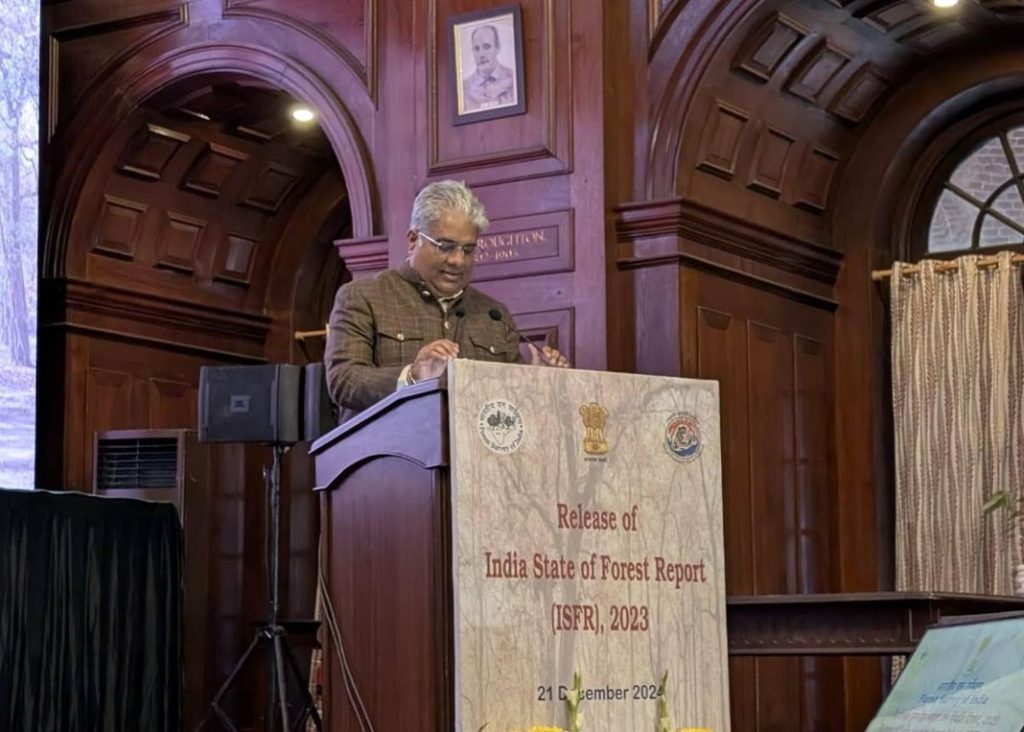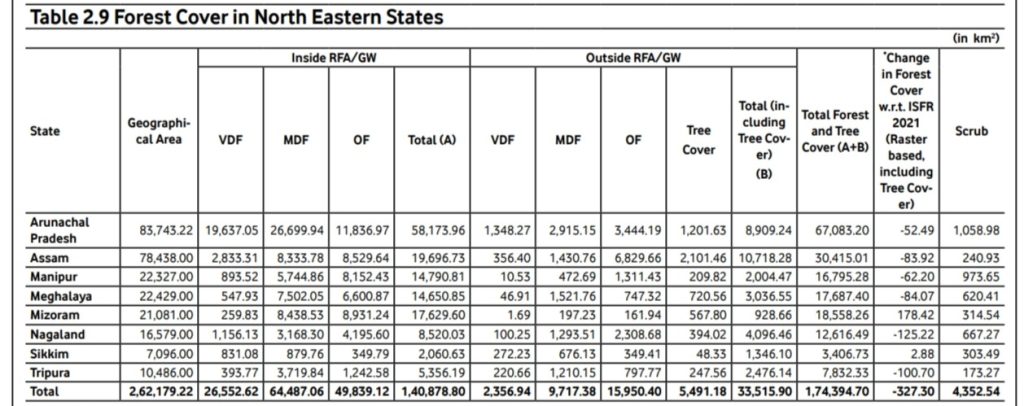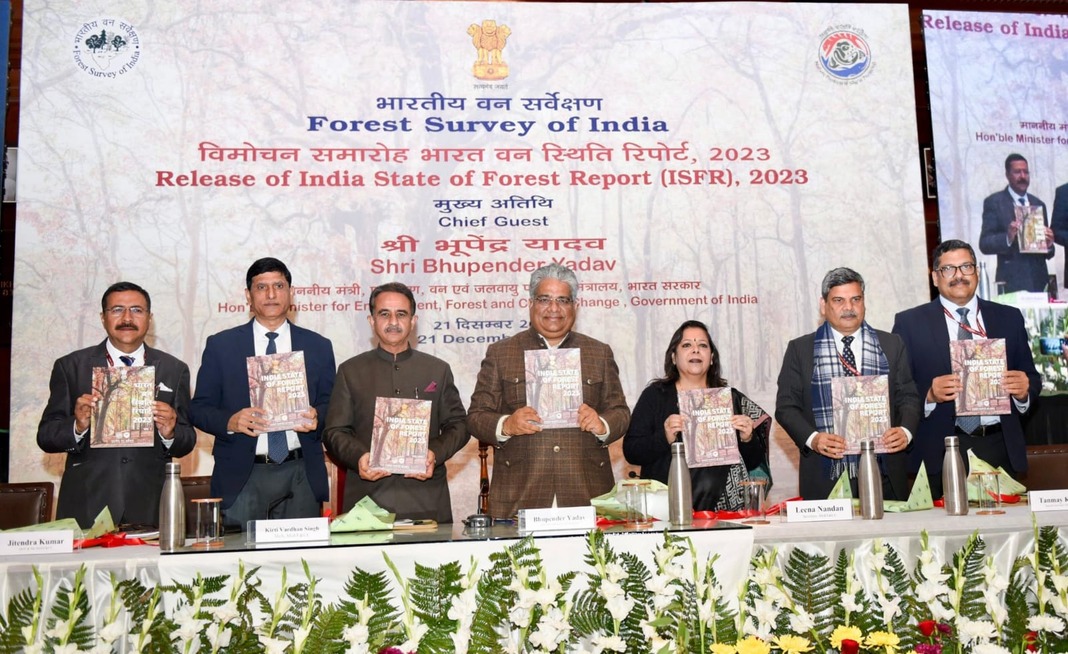Guwahati, Dec 21: Northeast India, one of the nation’s key biodiversity hotspots, lost 327.30 sq km of forest cover between 2021 and 2023, as revealed in the India State of Forest Report 2023 (ISFR 2023).
Union Minister for Environment, Forest, and Climate Change Bhupender Yadav released the report today at the Forest Research Institute in Dehradun. Published biennially by the Forest Survey of India (FSI) since 1987, the ISFR provides a detailed assessment of the nation’s forest and tree resources.
While the Minister highlighted a nationwide increase of 1,445 sq km in forest and tree cover since 2021, the Northeast—a region of immense ecological significance—registered a concerning loss.
Meghalaya, often called the “Scotland of the East,” accounted for 84.07 sq km of the decline. Although the report did not specify the causes of Meghalaya’s loss, deforestation in the region is frequently linked to human activities such as agricultural expansion, infrastructure development, and settlement growth. Traditional Jhum cultivation (shifting cultivation), a practice involving the clearing of forest land for temporary farming, continues to be a major factor. While this practice holds cultural importance, its ecological consequences for Meghalaya’s forests are severe.

Despite covering only 7.98% of India’s land area, the Northeast contributes a significant 21.08% of the country’s total forest and tree cover. Yet, deforestation and habitat fragmentation remain persistent threats to the region’s conservation efforts.
“A prevalent agricultural technique in this region is known as shifting or Jhum cultivation. This method involves the conversion of forest areas into agricultural areas by local communities,” the report noted.
Among the Northeastern states, Nagaland recorded the highest forest loss with 125.22 sq km, followed by Tripura with 100.22 sq km, and Assam with 83.92 sq km.

The report also pointed out the impact of large-scale rubber plantations in Tripura, which have expanded rapidly over the last decade due to favourable growing conditions. “Rubber cultivation has raised concerns about biodiversity loss as vast areas of natural forests have been converted into monoculture plantations, disrupting ecological balance,” it stated.
Despite these challenges, the Northeast remains an invaluable ecological asset for India. The findings underscore the urgency of implementing sustainable conservation measures to protect the region’s unique biodiversity and forest resources.




